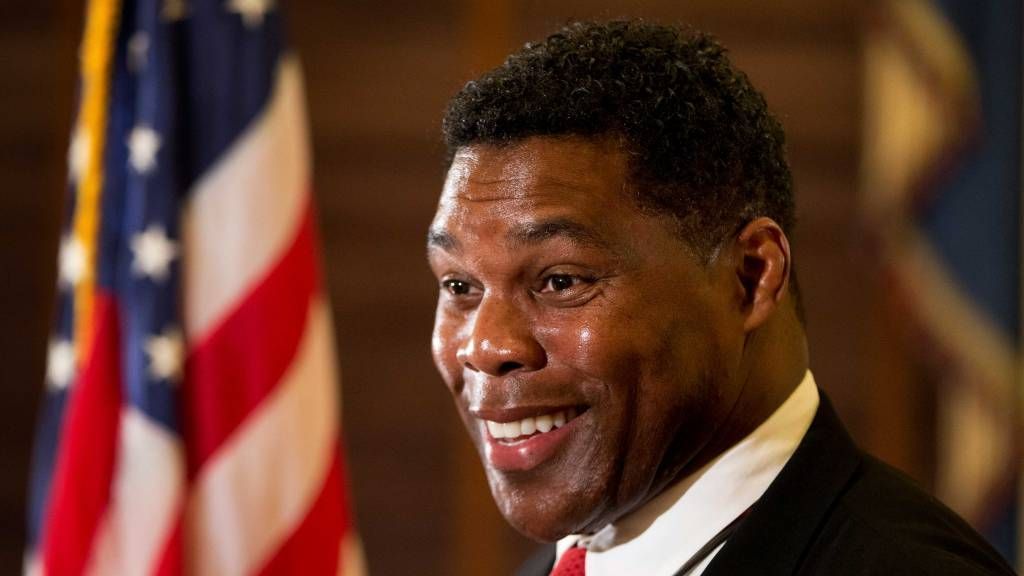Herschel Walker, Warnock head to Georgia runoff

ESPN News Services
ATLANTA — Democratic Sen. Raphael Warnock and Republican challenger Herschel Walker will meet in a Dec. 6 runoff in Georgia after neither reached the general election majority required under state law.
Walker had a storied career at the University of Georgia from 1980 to ’82. He led the Bulldogs to an undefeated record and national championship in 1980. In 1982, he won the Heisman Trophy. Georgia went 34-5 in his three seasons.
After a stint in the USFL, Walker played for more than a decade in the NFL, making two Pro Bowls.
But it’s not just football that voters are paying attention to. Walker’s rocky past came under scrutiny during the campaign and will again in the four-week blitz up to the runoff. Republicans, meanwhile, are hammering Warnock over inflation during the Democratic administration.
Depending on the outcomes in other Senate contests, this could reprise the 2020 election cycle, when two Senate runoffs in Georgia doubled as a national winner-take-all battle for Senate control. Victories from Warnock and Sen. Jon Ossoff, D-Ga., left the chamber divided 50-50 between the two major parties, with Vice President Kamala Harris giving Democrats the tiebreaking vote.
It will mean another month of Warnock hammering Walker, who is making his first bid for public office, as unqualified and Walker assailing Warnock as a rubber stamp for the White House.
“Raphael Warnock votes with Joe Biden 96% of the time,” Walker has told voters repeatedly. “He’s forgotten about the people of Georgia.”
Warnock, who is also the senior minister at Ebenezer Baptist Church in Atlanta, answers that Walker is “not ready” and “not fit” for high office. That’s an allusion to the celebrity athlete’s rocky past, from allegations of violence against his ex-wife to accusations by two women Walker once dated that he encouraged and paid for their abortions despite his public opposition to abortion rights.
Both approaches highlight the candidates’ most glaring liabilities.
Amid generationally high inflation and with Biden’s popularity lagging in Georgia, Warnock wants voters to make a localized choice, not a national referendum on Democrats as a whole. Georgia’s first Black U.S. senator, Warnock pitches himself as a pragmatist who cuts deals with Republicans when they’re willing and pushes Democratic-backed cost-cutting measures when they’re not. Among the top accomplishments Warnock touts: capping the cost of insulin and other drugs for Medicare recipients.
“I’ll work with anybody to get things done for the people of Georgia,” Warnock said.
Walker, meanwhile, denies that he’s ever paid for an abortion. And glossing over a cascade of other stories — documented exaggerations of his business record, academic achievements and philanthropic activities; publicly acknowledging three additional children during the campaign only after media reports on their existence — Walker touts his Christian faith and says his life is a story of “redemption.”
Through the scrutiny he calls “foolishness,” the Republican nominee has campaigned as a cultural and fiscal conservative. Walker, who is also Black, pledges to “bring people together” while framing Warnock as a divisive figure on matters of race and equality. Walker justifies his attack using snippets of Warnock’s sermons in which the pastor-senator discusses institutional racism.
Republicans used similar tactics against Warnock ahead of his runoff victory on Jan. 5, 2021. Warnock won that contest by about 95,000 votes out of 4.5 million cast.
Runoff dynamics this year would vary widely depending on the Senate makeup. If the Senate majority already has been settled, it could make it easier for Warnock to frame the race as a localized choice between himself and Walker. But if the Georgia outcome determines which party will hold a majority and set the agenda, Walker could have the upper hand in his effort to tie Warnock to Biden and national Democrats.
Information from The Associated Press was used in this report.